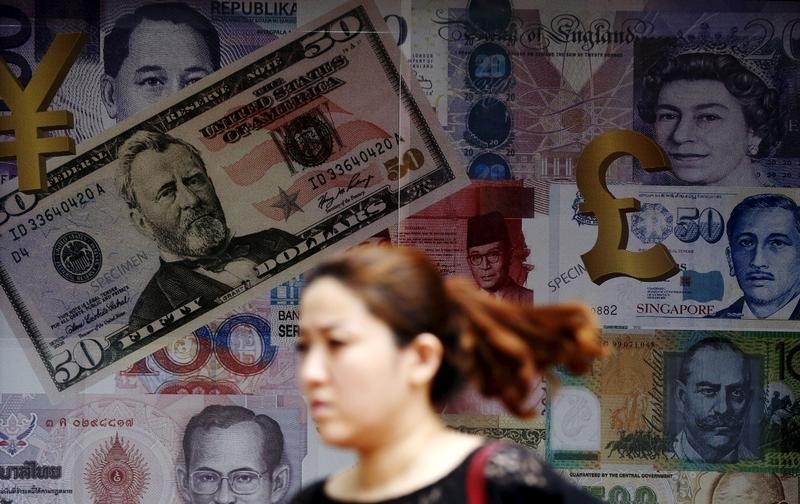By Yasin Ebrahim
Investing.com – The U.S. dollar remained near three-year highs on Wednesday, underpinned by better-than-expected economic data. The greenback had a muted reaction to the minutes of the Federal Reserve January meeting, which suggesting interest rates will likely be on hold for a time.
The U.S. dollar index, which measures the greenback against a trade-weighted basket of six major currencies, rose by 0.23% to 99.52, touching its highest level since May 2017.
"With regard to monetary policy beyond this meeting, participants viewed the current stance of policy as likely to remain appropriate for a time ... to support sustained expansion of economic activity, strong labor market conditions, and inflation returning to the Committee's symmetric 2 percent objective," the minutes showed.
The minutes had a muted impact on the dollar, following U.S. housing and wholesale inflation data that topped economists' forecasts.
The Commerce Department said Tuesday U.S. homebuilding fell 3.6% to a seasonally adjusted annual rate of about 1.6 million units in January. That was less than economists had expected.
The report also highlighted a sharp 9.2% rise in building permits to a rate of 1.5 million units. That was the highest in nearly 13 years, suggesting the housing market remains on solid footing, underpinned by lower mortgage rates.
The Labor Department said its producer price index for final demand increased 0.5% last month, above economists' forecasts. In the 12 months through January, the PPI rose 2.1%.
The positive economic data helped the dollar rack up gains against the yen, which fell to eight-month lows on easing safe-haven demand amid signs the spread of the coronavirus virus is slowing.
USD/JPY surged 1.50% to Y111.51.
The pound, meanwhile, continued to drift lower, shrugging off better-than-expected U.K. inflation data.
GBP/USD fell 0.60% to $1.2919, while the EUR/USD was flat at $1.0795
USD/CAD slipped 0.24% to C$1.3226, with the loonie catching a bid on data showing consumer prices rose faster than expected last month.
But the rise in loonie may be short-lived as RBC said the current inflation readings were unlikely to prove "a barrier to the Bank of Canada cutting its benchmark rate to support growth and get the economy back to its potential."
